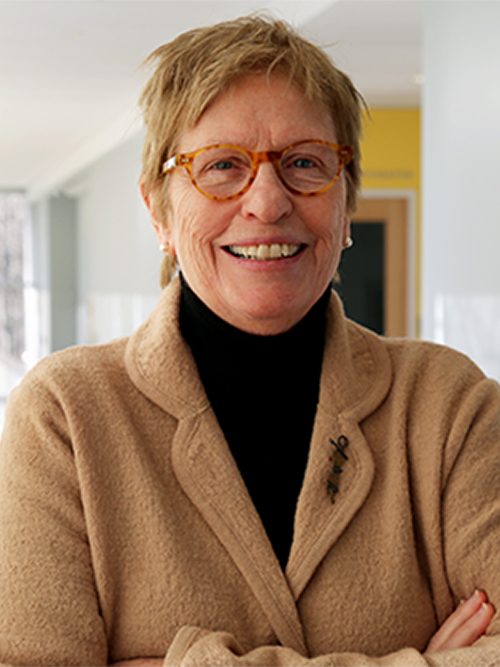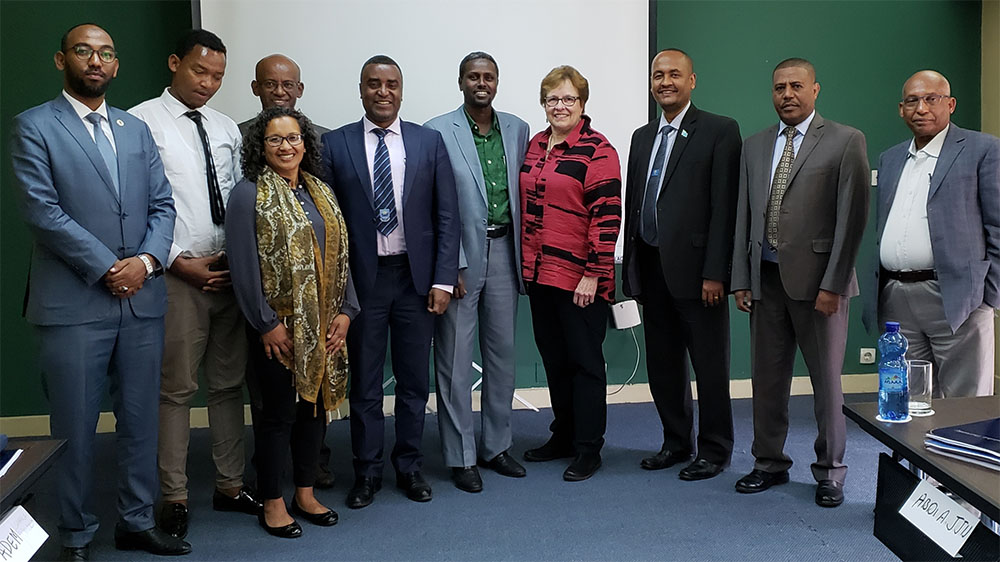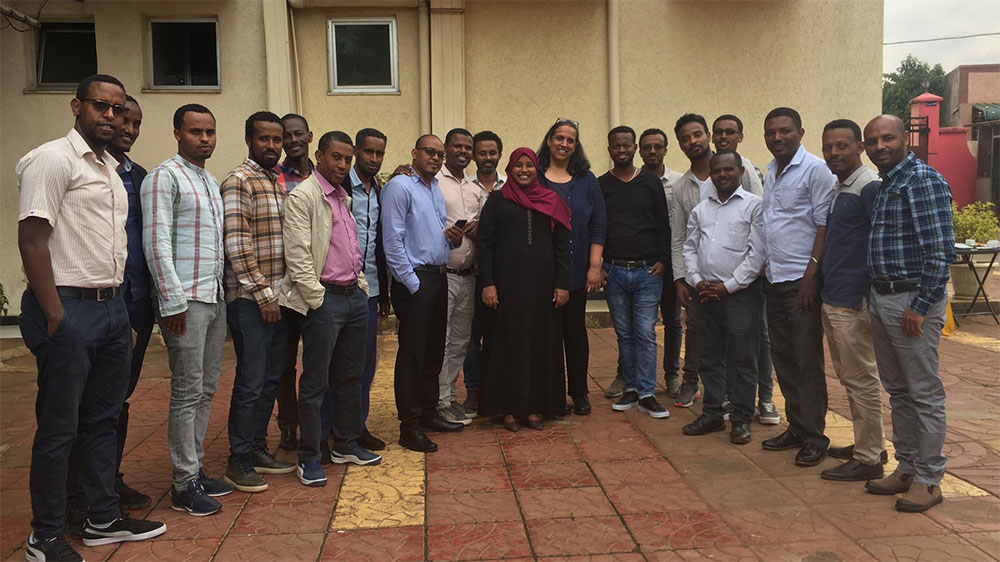
By Karen Shih
Ethiopia faces a youth employment crisis. Its economy is evolving rapidly from agrarian to industrial/technological, as climate change and poverty are shifting the population to cities. Against this backdrop, youth under age 25 — who make up nearly 60% of the population — are finding few opportunities to enter the workforce.
To tackle this problem, the government has invested in education, increasing the number of universities over the last two decades. But universities have struggled to address the skills mismatch between university graduates and employers, just as the private sector has struggled to create jobs and increase wages to keep up with the influx of graduates.

That’s why, in 2019, the Center for Youth and Communities (CYC) partnered with Save the Children for a one-year pilot program funded by USAID called Building the Potential of Youth Activity: Institutional Capacity Development Support to Ethiopian Higher Education Institutions.
“At its core, it is a university change initiative,” says CYC Director Susan Curnan. “The impetus is an amalgam of factors: poor employability and career options for millions of college graduates; a government mandate that universities take on the career issue; university missions that place them as leading economic engines for the country but without best practices, structures and policies that enable them to fulfill it vis-à-vis their students.”
The pilot program engaged six universities: Bahir Dar, Hawassa, Jigjiga, Jimma, Mekelle and Samara, across different regions of the country.
The CYC team was tasked with capacity development support for piloting the change initiative, which required working at both the national and university levels, says Senior Fellow Della Hughes, implementation director of the project. “What would it take to get career development centers up and running and engaging university leadership, faculty, employers so students could develop the competencies they need for the workforce and life?”
The pilot required buy-in at the highest level from the university presidents. All six presidents met in October, shortly after the project began in summer 2019, to create the Presidents’ Compact: Leadership for High-Level Innovation and Accountability, signaling their commitment to prioritize student employability development and career readiness.
“University presidents aren’t always asked to be advisers to government, so this Presidents’ Compact is groundbreaking as a way forward for us and for other universities to achieve social impact,” said a university president during the session.

To start the pilot, the CYC team conducted a rapid assessment of the universities in the summer of 2019. They interviewed leadership at each campus, including the university president, academic vice president, director of the gender office, director of the institute for technology, and career development staff and students to establish a baseline of each university’s capacity. Then, the CYC team created a report, which they shared with university leadership, and conducted action-planning workshops with university teams in September to develop a plan for the rest of the pilot year.
The CYC team, which also included Senior Scientist Sangeeta Tyagi, Senior Fellow Cathy Burack, Senior Fellow Alan Melchior ’74, MA’07, Senior Fellow Tammy Tai, MBA’06, Research Assistant Angesom Teklu, MA SID’19, and Heller Assistant Dean Ravi Lakshmikanthan, MA SID’99, designed and piloted the “Education Works: Transferable Life Skills Trainers’ Guide and Curriculum.” They facilitated a training of trainers for 75 leaders, faculty and staff members across the universities.
“We stressed with our participants that you can’t just train a few students in one week and have that be enough. You have to embed this training throughout the university curriculum so that every student is able to learn and practice over the course of their education,” Hughes says. “They heard that message and understood how critical it was. They took it very seriously and sent faculty from the medical school, law school, engineering, humanities, technology and others, including at the level of dean and associate dean.”
The curriculum addressed six core domains and topics: (1) positive self-concept, covering self-esteem, self-reflection, self-awareness, self-confidence and taking initiative; (2) self-control, covering delayed gratification, time management, goal setting, stress management and coping mechanisms; (3) social skills, covering empathy, conflict resolution, teamwork, adaptability and flexibility; (4) communication skills, covering active listening, verbal and nonverbal communication, reading and writing; (5) higher-order thinking skills, covering creativity and problem-solving, critical thinking and decision-making; and (6) job-search skills, covering CV writing, job interviewing, market analysis and search mechanisms.
The training of trainers “was effective, participatory, manageable and amazingly transferable,” said the center director of Mekelle University.

The CYC “Education Works” series also included: “Education Works: Career Development Center Management Course,” an eight-week online program; the “Education Works: Advancing Career Readiness and Private Sector Navigation Through University-Employer Engagement” guide; and “Education Works: Assessment of Institutionalization of Student Employability Development and Career Development.”
An essential aspect of the pilot was establishing a relationship with the Ministry of Science and Higher Education (MoSHE) and the Ethiopian Jobs Creation Commission (JCC). Along with Save the Children, CYC helped facilitate and lead a collective impact group that included representatives from MoSHE and JCC and other donor organizations. With all parties focused on solving the same problem, the opportunity to collaborate, reduce duplication and work toward high-impact common outcomes was imperative.
“Institutions of higher education form the bedrock of knowledge-based economies,” says Magdalena Fulton, Save the Children’s director of Youth Economic Opportunities. “The multi-sectoral partnership that resulted between universities, the government and the nonprofit sector under the pilot activity is exactly what is needed in order to support the 500,000 young people entering the job market every year.”
The COVID-19 pandemic and civil unrest in Ethiopia necessitated adjustments to the work plan in the final months of the pilot. The CYC team traveled to Ethiopia six times between July 2019 and February 2020, and once travel was restricted, the team trained and supported Save the Children Ethiopia staff to complete the remainder of the in-country work.
A MoSHE senior official described the CYC-developed curriculum as “impressive, a great job. We will include it in the academic curriculum and standardize it in all universities.”
Curnan says, “There are many opportunities and challenges remaining. Institutionalizing student employability development and career readiness will require careful scaling and management of the systems change process, as well as providing the ongoing policy and resource supports needed to deepen practice and engage employers.”
